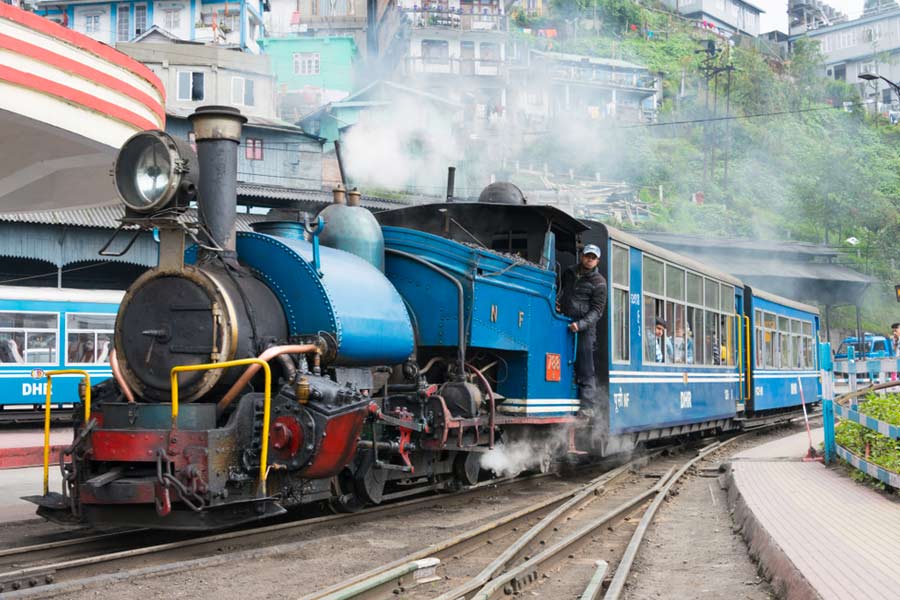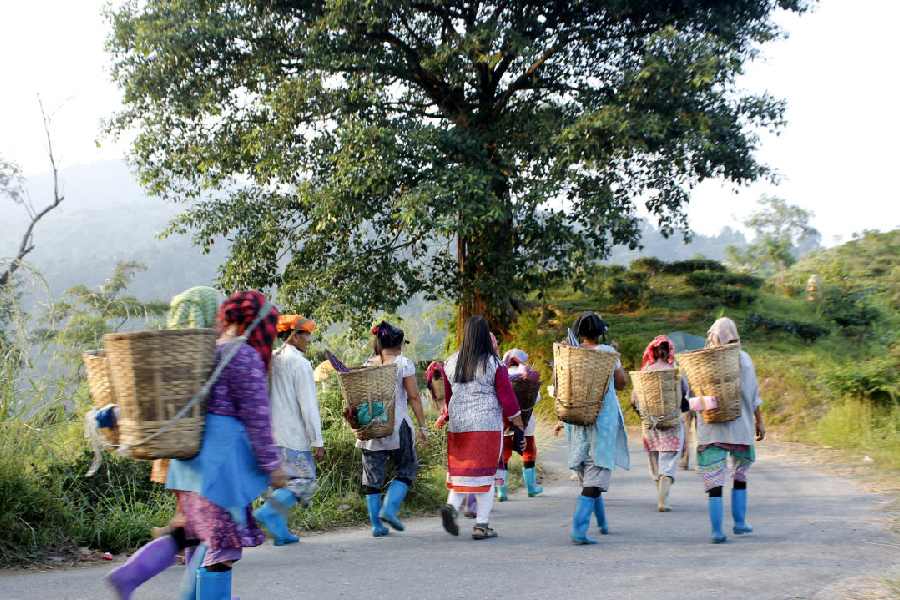The Darjeeling municipality has decided to levy a “tourist tax” on visitors to the hill town, a move being questioned by local hoteliers.
Sources told The Telegraph that the collection of the Rs 20 tax per day per visitor (above the age of five) had been outsourced through a tender process. “The municipality had kept a base price of Rs 25 lakh but the highest bidder offered Rs 28.25 lakh,” a source said.
The agency will hire collectors, each of whom will be provided with a uniform and an identity card. The agency has to pay the contract amount in two instalments: the first within a week of the issuance of the work order and the second as directed by the municipality.
The work order, which will specify when the collections will start, is likely to be issued on Monday.
“The collection of taxes will start very soon,” Darjeeling municipality chairman Dipendra Thakuri confirmed.
The hoteliers are unhappy. “The decision was taken by the municipality without consulting us. We had a very bad experience regarding a similar initiative in the past,” a hotelier said.
This is the fourth time the Darjeeling municipality has imposed a tourist tax, but each time previously the move fizzled away a few months after collection started.
The first time was in 2008, followed by a Rs 3 tax per head per day in 2011 and Rs 10 per head per day in 2012.
One reason for the past failures was the lack of cooperation from the hoteliers. Another was that the system of tax collection and deposition — made through private agencies appointed without floating a tender — was porous.
“This time, with the municipality asking the private agency to pay an upfront instalment, the collection will continue or else the agency will suffer losses,” a source said.
Many hoteliers said that in the past the collectors came and “demanded” to see the hotel register at their “own time”.
“The collectors asked us to collect the tax and hand it over to them. It is not our job to collect the tax. The tourists, too, are unwilling to pay,” a hotelier said.
Most hoteliers want the municipality to collect the tax at the entry points to Darjeeling. This is standard practice at tourist destinations like Gulmarg and Nainital.
“We have no problem if the civic body decides to collect tax but let them collect it before they enter the hotel, maybe at the entry points to the town,” a hotelier said.
District officials, however, said that collection at the entry points was impractical.
“It will be time-consuming to identify the tourists in a vehicle. On the narrow Darjeeling roads, such a pile-up of vehicles would create a massive traffic jam during the peak tourist season,” an official said.
The hotels are, anyway, best placed to ascertain the length of a visitor’s period of stay.
Sources said the private agency had begun handing over “tourist tax receipts” to the hotels.
“Many hoteliers are unwilling to accept the receipt books,” a source said.
Questions are also being asked about the contract amount.
“During a good tourism year, nearly 10 lakh tourists visit Darjeeling. Even if collection is done only from 70 per cent of the arrivals, we are looking at a collection figure far higher than the bid amount,” an observer said.
Darjeeling is home to 400-odd hotels. “A large number of tourists also put up in homestays. There is no clarity on homestays as the tender was only for hotels,” an administrative source said.
Visitors staying with friends or relatives also appear likely to escape the tax.












